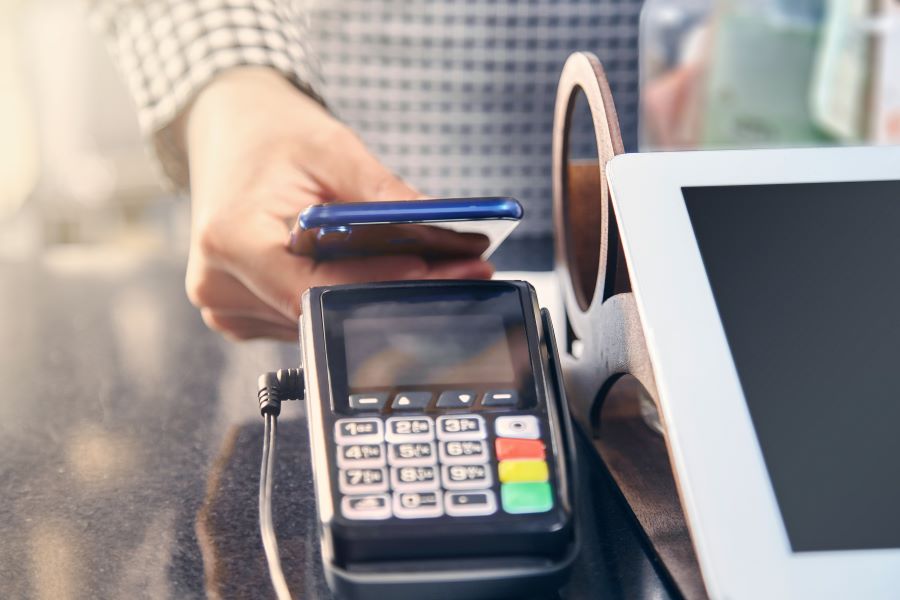Offline Mode of a POS System is a crucial feature in modern Point of Sale systems that allows businesses to continue their operations even when internet connectivity is lost. The POS system can still function offline, capturing transactions and storing them locally until the connection is restored.
An offline mode in a POS system is vital for maintaining seamless customer experiences and uninterrupted business operations. When internet connectivity is disrupted, businesses can still process payments, manage inventory levels, and track sales data. This ensures that customers can make purchases and businesses can continue to operate efficiently, regardless of connectivity issues.
Offline mode becomes particularly valuable in industries heavily relying on real-time data processing, such as the restaurant industry. In restaurants, for example, orders can still be taken and sent to the kitchen display system even when the internet is down. This allows for a seamless dining experience for customers and prevents service disruptions.
To ensure a smooth transition to offline mode, businesses should regularly test and prepare their POS systems for such scenarios. This includes keeping software systems current, regularly backing up data, and training staff to operate offline. By implementing these preparations, businesses can continue to provide seamless experiences to their customers and maintain their operations even during internet outages.
Web-based POS systems
Web-based POS systems have become increasingly popular as businesses look to streamline their operations and enhance the customer experience. These systems offer many features and benefits, including offline mode functionality, allowing businesses to continue processing payments and managing inventory levels without an internet connection. By understanding the importance of offline mode and implementing the right preparations, businesses can maintain smooth operations, avoid disruptions, and ensure customer satisfaction.
How does fully cloud-based POS work?
Fully cloud-based POS systems utilise cloud technology to store and process data, offering businesses many benefits. These systems securely store data on remote servers, accessible from any device with an internet connection. This allows for seamless integration with various online ordering platforms, ensuring real-time inventory tracking and streamlined operations.
In offline mode, a cloud-based POS system can still operate smoothly. Possible solutions to ensure this include having a backup internet connection or utilising mobile data. A local server or backup system can also help store and process data during internet outages.
- Offline Mode Functionality: Implement a dedicated offline mode within the POS system, allowing it to continue processing sales, capturing customer data, and managing inventory even when there’s no internet connection.
- Local Data Storage: Store essential transaction data and inventory information locally on the device, ensuring critical information is readily accessible without an internet connection.
- Automatic Data Sync: Enable automatic data synchronisation when the system reconnects to the internet. This ensures that all offline transactions and data updates are seamlessly integrated into the cloud once connectivity is restored.
- Redundant Connectivity: Utilise multiple internet service providers or backup connections like mobile hotspots to minimise downtime during network disruptions.
One of the key advantages of a cloud-based POS system is the ability to process payments even offline. With data stored in the cloud, the system can continue functioning during internet outages, ensuring uninterrupted business operations. Once the connection is restored, the system automatically syncs the data, providing a seamless experience for staff and customers.

Hybrid POS systems
Hybrid POS systems provide a seamless and efficient solution for businesses, combining the benefits of cloud-based functionality with the ability to operate offline. These systems offer valuable insights and preparation for seamless operation, ensuring business operations can continue uninterrupted even during internet outages. By seamlessly integrating with a wide range of payment processing options, including contactless and mobile payments, hybrid POS systems empower businesses to cater to their customers’ preferences.
In addition, these systems offer advanced features such as real-time inventory tracking and intuitive interfaces, enabling businesses to optimise their operations and provide exceptional customer experiences. Whether a restaurant, retail store, or online business, a hybrid POS system equips businesses with the essential features and capabilities to effectively manage payments, process transactions, and ensure customer satisfaction.
How does hybrid POS work?
Hybrid POS systems combine the best of both local and cloud-based functionalities, offering businesses a seamless operation even in offline mode. These systems are designed to provide valuable insights and ensure uninterrupted business operations.
In offline mode, a hybrid POS system utilises a local server or database to store transactional data and enable essential features like inventory management and payment processing. This local functionality allows businesses to continue processing payments and managing inventory levels, even if they experience an internet outage.
To ensure the smooth operation of a hybrid POS system in offline mode, businesses can take several key measures. First and foremost, regular data backups are essential to safeguarding important information. This can involve scheduled backups to the cloud or external storage devices.
Additionally, businesses should ensure that their devices have adequate storage capacity to handle offline transactions and store necessary data. Regular updates and maintenance of the POS system software are crucial to ensure optimal performance, especially offline.
- Local Backup Servers: Set up local backup servers or redundant hardware configurations that temporarily host the POS system and sync data with the primary cloud server when connectivity is reestablished.
- Redundant Connectivity: Employ multiple internet service providers or backup connection options, such as mobile hotspots or failover connections, to minimise downtime during network disruptions.
- Offline Alerts: Create a notification system that alerts users when the POS system switches to offline mode, providing guidance on how to proceed and mitigating potential confusion.
The key advantage of a hybrid POS system is its ability to operate effectively in both online and offline modes. This ensures that businesses never face disruptions in their sales and operations, resulting in satisfied customers and optimised business operations.
Card payments in offline mode
In offline mode, card payments are processed using a POS system’s offline functionality. When an internet connection is unavailable, the POS system seamlessly switches to offline mode and continues processing card payments.
A POS system’s offline payment processing functionality ensures a seamless customer experience. It enables businesses to accept and process card payments without an internet connection. This is particularly beneficial in areas with unstable or limited internet access.
Key features and capabilities of POS systems enable offline card payments. These include storing and encrypting card information locally securely, processing payments using offline payment processors, and generating offline transaction receipts. Some POS systems may also be able to manually enter card information for processing offline.

The benefits of processing card payments offline include uninterrupted business operations, reduced reliance on internet connectivity, and a seamless customer experience. It allows businesses to continue accepting card payments, keeps checkout processes efficient, and ensures customer satisfaction.
However, there are limitations to offline card payment processing. Offline transactions may need to be batched and processed once an internet connection is restored. This can result in delayed transaction settlements and reconciliation. Businesses should also ensure robust security measures to protect card information during offline processing.
Overall, offline card payment processing is a crucial feature of a POS system, enabling businesses to provide uninterrupted services and maintain a seamless customer experience, even in areas with limited connectivity.


